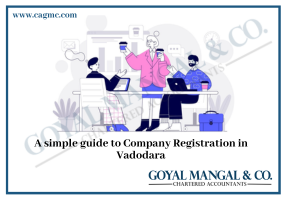
Private Companies V/S Public Companies V/S One Person Companies (OPCs) are three separate business entities each possessing their own distinctive qualities. Private companies are usually of a smaller scale, owned by a few individuals, and have limitations on the transfer of shares. In contrast, public companies are larger organizations that have their shares publicly traded on stock exchanges and available for investment by the public. One-person businesses are a distinct type created for individuals operating independently as entrepreneurs. It is extremely important to have a clear understanding of the distinctions when selecting the appropriate framework for your company, so this article will help you in knowing differentiation among the three.
|
Table of Content |
Overview
Several types of businesses exist within the corporate realm, each with its own distinct qualities and legal obligations. The purpose of this article is to outline and bring attention to the differences between Private Companies V/S Public Companies V/S One Person Companies (OPCs) by examining various aspects like relevant sections, capital needs, member, and director counts, share transferability, public issue provisions, and filing obligations.
The contrast among Private Companies, Public Companies, and One Person Companies (OPCs) highlights the differences in their legal framework, management, and responsibilities for meeting regulatory requirements. For example, in Private Companies, there are limitations on the transfer of shares and a cap of 200 members, whereas Public Companies permit unrestricted share transfer and do not impose any limits on membership. In contrast, OPCs can possess just a single member and are not obligated to maintain a minimum amount of capital.
Private and public corporations have distinct regulations governing the organization of board meetings and annual general meetings (AGMs), while one-person companies (OPCs) enjoy more adaptability in this matter. In addition, the company type dictates the specific forms and deadlines that need to be followed for filing financial statements and annual returns.

Private Limited Company
A private company refers to a business structure in which a small group of individuals possess ownership. Typically, it is smaller in size, and the owners have greater authority over its operations. The stock market does not allow for the unrestricted trading of shares in a privately owned company.
- As for the minimum capital requirement, it is removed and no longer exists for Private Limited Company.
- Additionally, there is a specific requirement regarding the minimum number of members, with a minimum of two and A maximum of 200 individuals in case of private limited company
- The minimum requirement for directors is 2 individuals & maximum of 15 directors is allowed in case of private limited company.
- Private limited company are allowed to receive borrowings solely from its members, directors, and their relatives
- Transferability of shares in case of private company is Limited but not completely forbidden
- Private limited companies are Not allowed to issue a prospectus
- The company name should conclude with “private Limited” or “Pvt Ltd”
- Must hold a minimum of four board meetings with no more than 120 days between each meeting in case of private limited company
- Either 1/3rd of the total number of directors or two directors should be the quorum for board meeting for private companies
- The Annual General Meeting (AGM) should take place within six months following the conclusion of the financial year.
- Additionally, there should not be a gap exceeding fifteen months between two consecutive meetings.
- Filing Financial Statement and Other documents needs to be submitted.
- Form AOC-4 should be submitted within 30 days after the Annual General Meeting
- The submission of Annual Return Form MGT-7 should occur within 60 days after the Annual General Meeting in case of private company
Public Companies
A public corporation is a bigger business that offers ownership shares to the public via stock exchanges. This means anyone can buy shares, and the company’s financial information is widely available. Public companies often have many shareholders and are subject to more regulations.
The Companies Act of 2013 provides the definition of a public company in section 2(71).
- As for the minimum capital requirement, it is removed and no longer exists for public companies
- In case of public company, the minimum number of members allowed is seven or greater & there is no maximum limit on the number of people.
- The minimum requirement for directors is 3 individuals & maximum of 15 directors is allowed in case of public company.
- Public company are permitted to accept deposits from the public after following the guidelines as mentioned in Section 73 of the Companies Act, 2013
- Transferability of shares in case of public company – Can be freely transferred
- Public companies are Allowed to release a prospectus to invite the public to invest in its shares, debentures, and deposits
- The company name should conclude with “Limited” or “Ltd”
- Must hold a minimum of four board meetings with no more than 120 days between each meeting in case of public company
- Either 1/3rd of the total number of directors or two directors should be the quorum for board meeting for public companies
- The Annual General Meeting (AGM) should take place within six months following the conclusion of the financial year.
- Additionally, there should not be a gap exceeding fifteen months between two consecutive meetings.
- Filing Financial Statement and Other documents needs to be submitted.
- Form AOC-4 should be submitted within 30 days after the Annual General Meeting
- The submission of Annual Return Form MGT-7 should occur within 60 days after the Annual General Meeting in case of public company
One Person Company
The Companies Act of 2013 provides a definition for a One Person Company in section 2(62). A one-person company is a unique structure for solo entrepreneurs. It allows a single person to start and run a company, enjoying limited liability. This means they are not personally responsible for the company’s debts.
- As for the minimum capital requirement, it is removed and no longer exists for One Person Company.
- There must be at least one person involved in case of one person company
- The minimum and maximum requirement for directors is 1 individual.
- One person company can accept borrowings from directors and relatives.
- Transferability of shares is not applicable in case of one person company.
- There is no specific requirement explained in case of one person company in case of issue of prospectus.
- The company name should conclude with “(OPC) private Limited”
- Must hold at least one board meeting in each half of the calendar year with a gap of at least 90 days between the two meetings in case of one person company
- There is no specific requirement in case of OPC explained for quorum for board meeting
- There is no requirement to conduct an Annual General Meeting in case of OPC.
- There is no specific requirement for quorum in one person company case.
- Filing Financial Statement and Other documents needs to be submitted.
- Form AOC-4 should be submitted within 180 days from the end of the financial year.
- An OPC is not required to prepare a Cash Flow Statement.
- Form MGT-7A should be submitted within 180 days from the end of the financial year.
Quorum for Annual General Meeting (AGM) in case of public and private companies
Two members must be personally present for a quorum to be achieved
Total Members Quorum
- 1000 – Five Members required
- >1000 up to 5000 – Fifteen Members required
- > 5000 – Thirty Members required
Final Words
In summary, the decision between a Private Companies V/S Public Companies V/S One Person Companies (OPCs) business depends on aspects such as ownership, size, and availability of funds. Private enterprises offer control and confidentiality, public enterprises present opportunities for growth and accessibility to public finances, and one-person enterprises are specifically designed for individual owners. The decision you make is determined by your company’s objectives and personal preferences.







